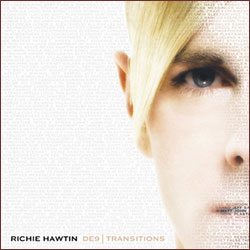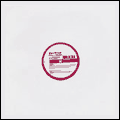|

|
|
|
January 6, 2005
../ Sony CD Protection Fiasco Reveals
Social Flaws
Label To Settle Class-Action Suits For Trying To Protect Assets
Sony BMG announced that it has agreed to settle several suits regarding
its controversial attempt to protect their CD releases from piracy. The settlement proposes a combination of replacement CDs, free downloads
and monetary compensation. Sony's copy protection debacle centered around First 4 Internet's invasive XCP "spyware" which not only utilized
"rootkit" techniques to render itself invisible on consumer's hard drives without user authorization, but also opened up consumer's computers
to Trojan horses allowing infected computers to be controlled remotely. The public backlash against Sony was understandable, however
the instant pile-on from the legal community was fascinating.
The major issue that was brushed aside from the media and the litigation-happy
American lawyers, who instantly sued the concern for a mostly harmless software install, was "do record labels have the right to protect their
content?" From the reaction, the answer is no.
It is undeniable that Sony made a huge error in selecting First 4 Internet's
CD protection technology. However, the label was merely trying to thwart end-users from ripping the CDs and illegally trading them via the
Peer-To-Peer (P2P) networks. Sony's intention was certainly not to open up its consumer's computers to hazardous viruses. First 4 Internet
is the company that should be in the line of fire. Yes, Sony is responsible. Whoever green-lighted the XCP technology without proper testing
at Sony should be tar-and-feathered, but don't kick the company in the teeth
for trying to protect their content.
The worst part of this unfortunate scenario is the instantaneous litigation
that was initiated by American attorneys. It was almost like they were had all the paper work all ready to go except for the date.
Were the lawyers interested in the bigger picture - a company trying to
protect its assets? No. The lawyers smelled money, and decided to punish Sony for making an error in judgment on the technology they chose
to protect themselves. And what exactly were the damages to end-users? They couldn't rip the CDs, some users had problems removing
the software? How many plaintiffs actually lost files or had their operating
system rendered useless? A handful? Fact is, only after the flaw in
XCP was revealed did Trojan horses emerge to take advantage of the security flaw.
The public's message to record labels is: You're not allowed to protect your
assets. Look at the end result; not only is Sony settling the case by issuing refunds, free downloads and replacement CDs, but they are
dumping all copy-protection from their CDs including technology from SunnComm.
Although SunnComm's MediaMax protection has not been proved to hurt users PCs, Sony is allowing consumers who have purchased SunnComm releases
to replace their CDs with non-protected versions. In addition, Sony will not implement the technology in future releases. Thus,
First 4 Internet's shoddy technology has hurt the entire field of copy-protection.
Sony is now in damage control mode trying to put the whole episode behind them.
By swiftly offering a settlement, the concern hopes to move forward without dragging out a class action lawsuit. Several groups have
started a campaign to boycott Sony artists, but this hasn't gained any real traction if you look at sales numbers. To add insult to injury,
First 4 Internet's patch, that Sony posted on their site, was flawed and had to be
updated since it was doing worse damage than the original install.
For the advanced user, finding a workaround for virtually any copy-protection
software is never a problem. So why have Sony and other labels gone to such great lengths to protect their content? Sure, anything they can do
to make it harder for the consumer to rip CDs into MP3 files for trading with friends - or worse, on the Internet - is a benefit.
However, many analysts agree there could be legal ramifications in the future
if the labels don't attempt to aggressively protect their assets today.
The Future: There are many takeaways to reflect on regarding this fiasco.
To deflect the scorn and identify the real culprit, Sony should have immediately instituted a lawsuit against First 4 Internet when the whole fiasco
erupted. Concurrently, they should have publicly fired the Sony employee(s) responsible for instituting the technology. But they did neither and they
have lost a lot of face because of their public reaction.
It is completely fair for a label like Sony BMG to protect their content to the best of their abilities, but don't punish your customers in the
process, either by infecting their computers with harmful software or by not allowing the songs to be downloaded to an iPod.
Additionally, it only takes a one savvy individual to crack the copy-protection, burn MP3's and then post them on a P2P network, to rendering the
entire technology moot for each CD.
And finally, when are respected institutions like Sony going to learn that you don't outsource your technology requirements to companies who name
themselves First 4 Internet?
>>> Back To Digihear?

Advertise on Futuremusic.com! | Privacy Policy |
Employment Opportunities | Contact Us
Copyright © 2006 Futuremusic® All Rights Reserved.

|

|
|



As the name correctly implies, Experiments In Sound, is Futuremusic's latest endeavor for pushing electronic music technology to the very edge of what's possible.
Experiments In Sound grew out of Futuremusic's avant-garde events in
New York City that featured DJ's taking mixing and live sound reinforcement to a whole new level with the very latest gear and software.
Now Experiments In Sound has become The Ultimate Mix Contest...
After the tremendous success of our groundbreaking The Next Big Thing DJ Contest, Futuremusic has decided to once again create a new paradigm...
Learn more about Experiments In Sound!




Futuremusic wants to thank everyone who participated in The Next Big Thing 2004. John Digweed, Beatport, Alienware, M-Audio, Native Instruments, IK Multimedia,
PVDJ, PK Graphics, Ableton, The DubHouse, Propellerheads, Technics, FreeFloat, The Church, PCDJ and every DJ who entered this year's event thank you. From the sheer number of
quality mixes, we can tell you that dance music is thriving in the United States. The amount of outstanding talent and creativity really blew us away, and every DJ who's putting
their heart, mind and soul behind the music is a winner. John Digweed has
made his decision and the winner is...
Think you got skills?? Then start practicing! The Next Big Thing 2005 will kick off at the end of the summer!!




News Archives

Digihear? Stories: December 2005
Digihear? Stories: November 2005
Digihear? Stories: October 2005
Digihear? Stories: September 2005
Digihear? Stories: August 2005
Digihear? Stories: July 2005
Digihear? Stories: June 2005
Digihear? Stories: May 2005
Digihear? Stories: April 2005
Digihear? Stories: March 2005
Digihear? Stories: February 2005
Digihear? Stories: January 2005


|
|














